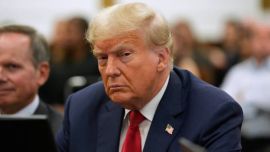President Alberto Fernández and Economy Minister Martín Guzmán have announced a bonus of 18,000 pesos for the informally employed, domestic service workers and the self-employed in A and B categories (to be paid in two monthly quotas), as well as a single quota of 12,000 pesos for the retired on a minimum pension.
At the same time, the government has proposed a windfall tax on the “unexpected income” of companies netting an annual profit of over a billion pesos, detailed Guzmán, who explained that only 3.2 percent of the country’s firms were in that league.
For economist Salvador Di Stefano, the announcements “contained nothing new because in order to distribute, you have to generate income – the important thing would be for the government to put more effort into that.”
In statements to RePerfilAr news show, Di Stefano added that “neither the president nor the minister spoke of that” but rather “of piling on more taxes and increasing the problems which the Argentine economy already has.”
The economist affirmed: “Inflation is the tax which affects the poorest social classes and the problem of Argentina is not war. In Ukraine last month’s inflation was 4.5 percent with an annual rate of 13.7 percent while in Argentina March inflation was 6.7 percent projecting annually to 55 percent.”
For his part, Fausto Spotorno commented that “these bonuses for pensioners and the informally employed are a bid to avoid their incomes falling in real terms because these groups are very close to falling below the poverty line. Since there are fiscal problems, this can only be done with a bonus because it cannot be guaranteed all the time.”
Regarding the windfall tax on “unexpected income,” Spotorno opined: “That’s folly, I don’t know how much they’ll be able to raise with that. We must see how they calculate it and which companies are entered.”
He continued: “Unexpected profits are already taxed. Company profits are always volatile, sometimes they earn more than expected and sometimes they lose more. This is a new tax on production when Argentina needs to produce and not punish those who do well and those who produce.”
Damián Di Pace, the director of the Focus Market consultancy firm, branded the new tax "a disincentive for private investment.”
“Some will pay on unexpected income, others on expected income, others owing to property revaluation and others still from their tax floors not being raised,” he explained.
For Di Pace, this kind of measure "is the vindication of a state trying to compensate the population’s lack of income due to lack of production and the genuine generation of wealth on the part of the private sector, mounting a greater tax burden on that sector where the state takes charge in order to compensate certain sectors when it is the state generating the inflation which it tries to compensate."
Economic analyst Christian Buteler indicated that “unexpected income is an invention.”
“What Minister Guzmán is proposing is simply a tax increase on the earnings of some companies,” he said, adding: “If a company earns a million pesos and pays 35 percent to the taxman, that makes 350,000 pesos. If they for some other motive earn 10 million pesos and pay 35 percent to the taxman, the latter picks up 3.5 million pesos. The state already receives more due to greater company earnings and does not need a new tax.”
– TIMES/PERFIL
























Comments